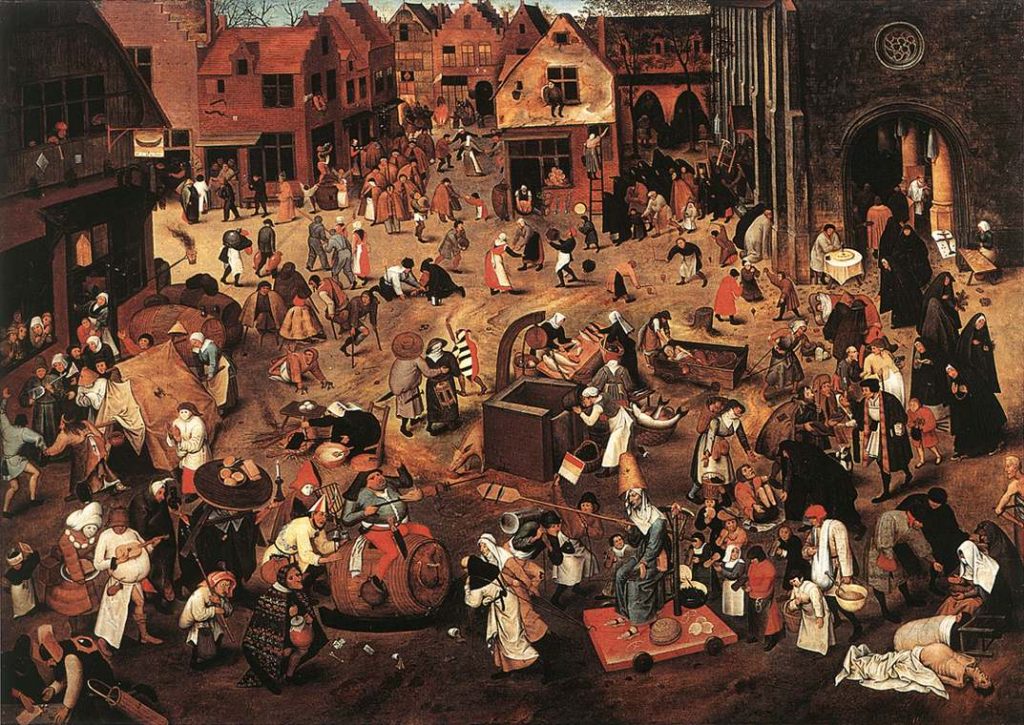How has the modern state affected the role of intermediary civil institutions in our society?
Sometimes the things that are most obvious are the things that elude us. I’m not talking about “elephant in the room” kinds of things. I’m talking more about the fact that when we are looking at something we are rarely conscious about things such as the source of light that illuminates what we see, or the sense of sight and the mechanics of optics. They are conditions for what we do, and as such are largely unreflected upon. Indeed, even if we wanted to it’s not as if we could see light or vision—we know them only by their effects.
Such is the case in our contemporary understandings of relationships between the public and the private sectors.
We can observe and study government, and we could look at “outcomes” and “measurements of effectiveness” of charitable organizations, but we remain, for the most part, largely oblivious of the context within which such observations and judgments take place.
The most determinative social and political reality of our day, the air that we breathe and the light in which we operate, is the modern state. Yet few of us reflect on what this is, how it operates, and how it draws the contours which limit our choices. Its power is testified to by the fact that we don’t really know how to think outside of it.
We do have historical options available to us. The medieval world, for example, was one that proliferated competing authorities, town and village, and a complex social sphere that included churches, guilds, and so forth. The key, as Robert Nisbet used to argue, was the differentiation of function and authority. Put another way, authority was dispersed along the lines of the different functions performed by a panoply of social institutions. These institutions, in their own way, conferred status, membership, and a sense of meaning and purpose for individual action.
With the growth of the modern state and the economic pressures of industrialization, this differentiation began to collapse. As the function of these institutions—church, family, local communities, voluntary associations—began to wane, so did their authority. The result was not only an increasing authority for the modern state, but its absorption of functions. As Max Weber observed, the inclination for state-based politics is always monopolistic.
This narrowing of authority whereby competing institutions no longer offer make-weights to increasingly centralized bureaucratic authority, and where the wide range social functions were increasingly taken over, marks the determinative political reality of our age.
The only option left to non-state actors, it would appear, would be to use either electoral politics or lobbying to capture the state apparatus to direct it to desired ends. And since that apparatus had become so sprawling and so complex you wouldn’t even have to capture the whole thing itself. Grabbing one arm of it—the way, for example, the Gates Foundation did with the Department of Education—would be sufficient if your own purposes were sufficiently narrow.
Private organizations can no longer operate as private organizations. The work of organized philanthropy or charity takes place in a political context where their activities are not so much alternatives to state-based politics but are indulgences thereof. A classic example of this would be the legal status of “faith-based” initiatives, a whole White House office dedicated to asseverating which ones would be permissible and which ones not.
Private organizations are thus left to poke and prod the spaces left temporarily empty by the expansive power of the state. They work in the crevices, like fragile weeds sprouting up among the cracks of bureaucratic pavement, desperately trying not to wither or to fall victim to Round-Up.
There is no possibility of organized action without accounting for the reality that the state is the context of action, and the sole determiner, under the coercive authority of the law, of what is permissible and what is not.
Politics has become a battle for the control of the levers of power, not, as it was, a battle for alternative centers of power. There remain, however, those cracks and crevices where good can be done, and this is where most private organizations will do their work. Only those well-heeled and well-connected will ever be able to pull a lever; and they’ll likely want to kill off the weeds in the process.






